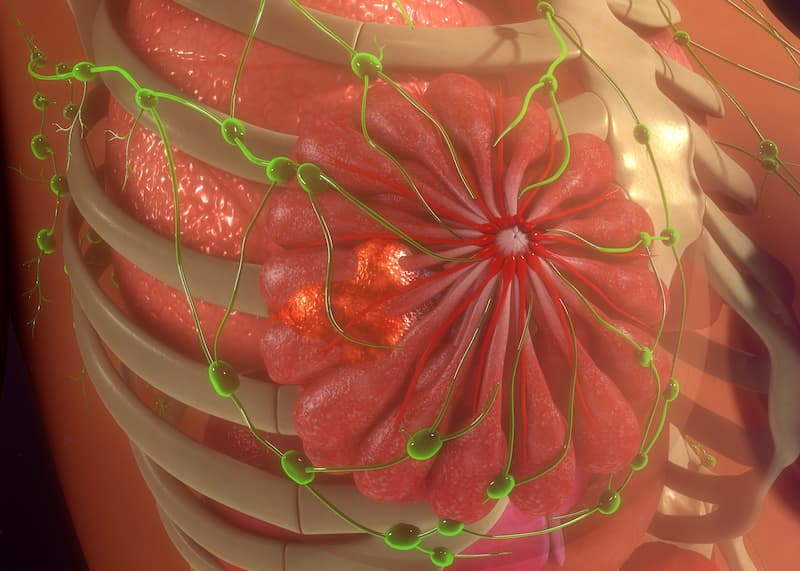Novel Antibody-Drug Conjugate Yields PFS Benefit in HER2+ Breast Cancer
Investigators plan to submit a communication application to seek marketing approval in China for ARX788 as therapy for HER2-positive advanced or metastatic breast cancer.
The investigational anti-HER2 antibody-drug conjugate ARX788 demonstrated a statistically significant improvement in the primary end point of progression-free survival (PFS) compared with control agents as a treatment for patients with HER2-positive, locally advanced or metastatic breast cancer in China, according to a press release on data from the phase 3 ACE-Breast-03 trial (NCT04829604).1
"The positive results from this large phase 3 study provide further support for our rationale to develop ARX788 globally in [patients with] HER2-positive breast cancer,” according to the manufacturers of ARX788.

An independent data monitoring committee conducted the interim analysis after two-thirds of the PFS events had taken place. Investigators plan to submit a communication application to seek marketing approval in China following discussion with the National Medical Products Administration based on the trial data.
“The positive results from this large phase 3 study provide further support for our rationale to develop ARX788 globally in [patients with] HER2-positive breast cancer,” Daniel O’Connor, chief executive officer at Ambrx, said in the press release.
Investigators of the global phase 3 ACE-Breast-03 study randomly assigned a total of 441 patients with HER2-positive breast cancer previously treated with taxane and trastuzumab 1:1 to either receive ARX788 or a control regimen including lapatinib (Tykerb) plus capecitabine.
Secondary end points of the trial included objective response rate, duration of response, best overall response, disease control rate, overall survival, and the incidence of anti-drug antibodies.
Patients 18 years and older with a life expectancy of at least 6 months and previously treated HER2-positive metastatic breast cancer were eligible for enrollment on the study. Additional inclusion criteria included having an ECOG performance status of 0 or 1, at least 1 measurable lesion per RECIST v1.1 criteria, an adequate tumor sample available for confirmation of HER2 status, stable brain metastases, and adequate organ function.
Any acute toxicities that occurred as a result of a previous therapy, surgery, radiotherapy—with the exception of alopecia—needed to have resolved to grade 1 or less before enrolling on the study.
Patients with a history of allergic reactions to any component of ARX788 or a prior history of interstitial lung disease, pneumonitis, or other clinically significant lung diseases were unable to enroll on the trial. Patients were also unsuitable for enrollment if they had any active ocular infections; a history of congestive heart failure, unstable angina, pectoris, or cardiac arrhythmia within 12 months before beginning study treatment; grade 3/4 peripheral neuropathy; a history of central nervous system metastases; or current severe, uncontrolled systemic disease.
Those who were pregnant or breast feeding, had an active hepatitis C/B or human immunodeficiency virus infection, or who underwent a clinically significant surgical intervention or radiotherapy 21 days before the first study treatment dose were also not eligible for enrollment.
Previously, the FDA granted fast track designation to ARX788 in advanced or metastatic HER2-positive breast cancer in January 2021.2 The designation was supported by preclinical data indicating that ARX788 induced greater tumor suppression compared with ado-trastuzumab emtansine (Kadcyla) in HER2-high and HER2-low models.
“This is an important milestone for ARX788 that underscores the strong unmet medical need to develop new and effective treatment options for [patients with] breast cancer whose tumors progressed on currently approved HER2-directed regimens,” Joy Yan, MD, PhD, chief medical officer and board member at KeyMed Biosciences, said in a press release on the agent’s fast track designation.
References
- ACE-Breast-02 pivotal phase 3 study of Ambrx’s ARX788 for the treatment of HER2 positive metastatic breast cancer achieves positive results. News release. Ambrx Biopharma. March 1, 2023. Accessed March 2, 2023. bwnews.pr/3ZcYVHn
- FDA grants ARX788 fast track designation for HER2-positive metastatic breast cancer. News release. January 4, 2021. Accessed March 2, 2023. bit.ly/3ILZKAb
Treatment Combinations for HER2-Positive Breast Cancer
March 7th 2013As part of our coverage for the 30th Annual Miami Breast Cancer Conference, we bring you an interview with Dr. Mark Pegram, director of the breast cancer program at the Stanford Women’s Cancer Center and codirector of the molecular therapeutics program. Dr. Pegram will be discussing the potential for novel HER2 combination therapies at the conference.